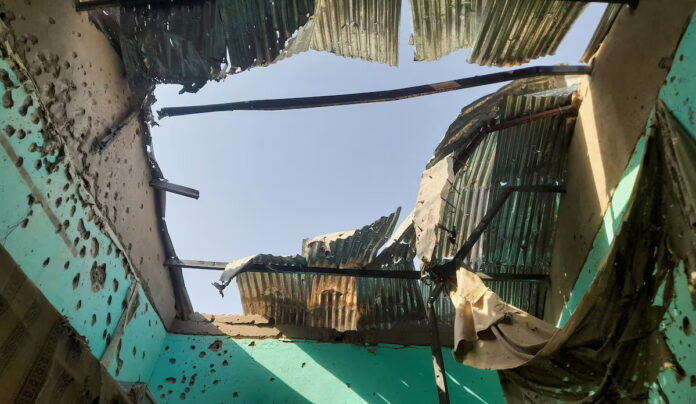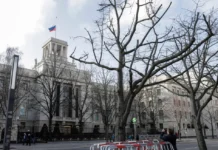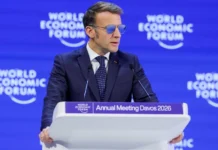
Sudan’s paramilitary Rapid Support Forces (RSF) are battling the final pockets of resistance in the Darfur city of al-Fashir after an 18-month siege, a development that could cement the country’s de facto split between rival military factions and deepen its humanitarian crisis.
The RSF announced Sunday that it had seized the Sudanese army’s headquarters in al-Fashir, the last major stronghold of government forces in the vast western region.
Since then, witnesses and aid officials say RSF fighters have detained fleeing civilians in nearby towns and villages, with the International Organization for Migration reporting at least 26,000 people newly displaced by the fighting.
Army chief General Abdel Fattah al-Burhan confirmed in a televised speech that his forces had withdrawn from the devastated city, citing “the destruction and intentional killings of civilians.”
Two Sudanese military sources said thousands of soldiers and allied ex-rebels remain trapped in western neighborhoods surrounded by RSF units.
Darfur has long been the RSF’s power base, where the group has established a parallel administration.
Its commander, General Mohamed Hamdan Dagalo, known as Hemedti, is believed to be based. U.S. senior adviser for Arab and African affairs Massad Boulos warned that the RSF’s full control of Darfur “could have dangerous and worrying consequences in the future in terms of partition,” comparing the situation to Libya’s east-west divide.
Analysts say the RSF’s victory in al-Fashir could embolden the force to expand its campaign across Sudan, particularly as peace talks brokered by Washington show little progress.
The war, now in its third year, has already caused widespread famine, displaced millions, and fueled ethnically driven massacres.
Despite the army’s earlier success in pushing the RSF out of Khartoum, the paramilitary has amassed advanced weaponry, including long-range drones, raising fears of renewed offensives.
U.N. Secretary-General António Guterres condemned the foreign flow of weapons into Sudan, warning that external interference was “undermining the chances of a political solution.” The Sudanese army has accused the United Arab Emirates of arming the RSF, a charge the UAE denies.
Alan Boswell, Horn of Africa director for the Crisis Group, said the RSF showed no signs of halting its advance. “As long as they are receiving enough supplies to continue a war effort, they still look like they are continuing to escalate this war,” he said.
Over the weekend, RSF forces also captured Bara, a key city in North Kordofan, positioning them within hours of Khartoum.
“Our liberation of al-Fashir is the liberation of Sudan, all the way to Port Sudan,” RSF deputy commander Abdelrahim Dagalo declared in a video released Sunday.
Humanitarian agencies report dire conditions for civilians fleeing al-Fashir. U.N. official Denise Brown described survivors arriving in nearby towns as “dehydrated, malnourished, some injured and all traumatized.”
Eyewitnesses said RSF fighters have been rounding up civilians and directing them toward makeshift camps around the city. Activists warn of potential revenge attacks against members of the Zaghawa ethnic group, echoing earlier atrocities in the Zamzam displacement camp.
While the RSF claims it is providing safe passage for civilians and former fighters, unverified videos posted by activists appear to show RSF soldiers shooting unarmed men and celebrating around bodies.
The fall of al-Fashir marks a turning point in Sudan’s brutal conflict, one that risks solidifying a partition between an RSF-controlled west and army-held east, deepening the suffering of millions already caught in the crossfire.
Source: Reuters
Written By Rodney Mbua


















